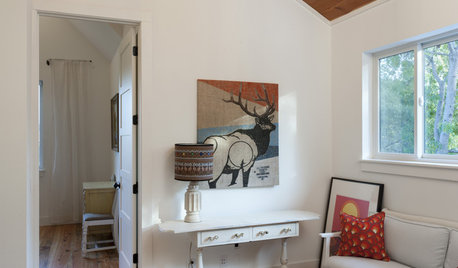Reflections On Society's New Use Of Words
hooked123
7 years ago
Featured Answer
Sort by:Oldest
Comments (108)
chisue
7 years agojim_1 (Zone 5B)
7 years agoRelated Discussions
2007 North Star Lily Society Education Seminar
Comments (1)I knew I'd forget something: Since Lilium x formolongi plants are continuously growing, the bulb stays very small. With several stalks in a plant, the bulb looked to be only about the size of a quarter in a photo he showed. And we each got a packet of L. x formolongi seed to play with too....See Moreseed info from plumeria society
Comments (1)Hi federal_hill, great informations specially for newbies on Plumerias from seed growers. I believe that in areas with longer summer the tall of seedling is higher, also I think in areas with hot summer, young seedlings grow better (taller) if they are in a semi shade position. I don't know why but in a corner of my veranda the seedling growing faster (taller) than the others. I don't watering the pots but every day seedling watered by a automatic spraying system (for watering-humidity and against spider mites) I don't use a balanced water soluble fertilizer (eg 20-20-20) but I use a 30-10-10 (for growth), also fishfert-seaweed and epson salt helps a lot the young seedlings. About planting I prefer "layers of a wet terry cloth " and very young seedlings I offer them temp. abt 65f, grow lights and I cover them (for humidity) with a piece of naylon (with holes) and I watering by spraying every 2-3 days. Finally I found that for very young seedlings, I watering them (with spray) only at early morning and never at evening, at night must be dry (I lost some young seedlings when I was watering at evening),changing the watering time at morning I did n't have any more fungus problem. Finally I prefer to sow the seeds abt 2 months before spring so that when the temp. at night is over than 55-60 I transfer them outside, so that next winter to be strong with a lot of roots. John from Athens Greece...See MoreNew Words
Comments (21)I like to find words from other cultures for which we have no concept in our society. I was fascinated by this example from Finland, as we in the US are likely to be shot as trespassers if we wander too freely without permission on private lands... From the Finnish: "Jokamiehenoikeus"---"The right for anyone to gather wild berries, mushrooms, flowers, to freely roam and travel the countryside, so long as you don't intrude on peoples" privacy." What a wonderful concept. From what I understand, a similar value exists as well in Germany and the UK....See MoreWhat is a McMansion? Tell Us In 25 Words or Less
Comments (98)In Los Angeles we went through the overbuilt cycle a number of years ago and the problem was that while the new homeowners could afford the house they were not prepared for the maintenance costs. So my guess is that in several years McMansion will mean suburban blight. When you are a homeowner and realize that maintenance is charged based on square footage having a large house, especially if you are only using a part of it, is very costly. Poor insulation leads to higher utility costs. All the decorative roof peaks and valleys that might leak…and those post tension foundations where a plumbing repair that could be quickly and easily handled on a raised foundation may end up costing thousands......See MoreFun2BHere
7 years agoanoriginal
7 years agoVertise
7 years agolast modified: 7 years agosocks
7 years agoVertise
7 years agolast modified: 7 years agoaok27502
7 years agoVertise
7 years agolast modified: 7 years agomaxmom96
7 years agocolleenoz
7 years agoBB Galore
7 years agoAnnie Deighnaugh
7 years agopetalique
7 years agolast modified: 7 years agomojomom
7 years agolast modified: 7 years agojim_1 (Zone 5B)
7 years agocolleenoz
7 years agoPawprint
7 years agoblfenton
7 years agohounds_x_two
7 years agoamicus
7 years agomaxmom96
7 years ago
Related Stories

PRODUCT PICKSGuest Picks: Reflection Rainbow
Mirrors in every color offer an unexpected way to add a bright spot to walls in any room
Full Story
MOST POPULARA Few Words on the Power of Simplicity
An architect considers a pared-down approach to modern home design
Full Story
DECORATING GUIDESSpell It Out: Words of Inspiration for Your House
A favorite quote can enhance a room the way an inspiring idea engages your mind. Here’s how to add word power to your interiors
Full Story
GREAT DESIGNERSHappy Birthday to the Saarinens! Design Words of Wisdom to Celebrate
Eero and Eliel Saarinen share a birthday and the design world's admiration. Let's consider some of their insight in honor of the day
Full Story
DECORATING GUIDESIt’s a Mirror-acle! 5 Ways to Make Reflecting Walls Work
From the bedroom to the outdoors, mirrored walls can help reflect light and create the illusion of space
Full Story
HOMES AROUND THE WORLDHouzz Tour: An Incredible Mirror Reflecting the Dolomites
A pair of vacation homes in an Italian apple orchard amplify the beauty of the South Tyrolean landscape
Full Story
OUTBUILDINGSRoom of the Day: A Backyard Studio for Repose and Reflection
See an Atlanta man cave that’s more Bauhaus than Bedrock — and offers outdoor spots for relaxing, rain or shine
Full Story
FUN HOUZZ20 Rooms With Words to Inspire
Quotes, clever phrases and pick-me-ups celebrate home, love, kindness, creativity and resilience
Full Story
MOST POPULARThree Magic Words for a Clean Home and a Better Life
Not a natural tidying and organizing whiz? Take hope in one short phrase that can change your life forever
Full Story
ARCHITECTURE9 Architects Reflect on Being a Woman in Architecture
For International Women’s Day, female architects around the world share how the field has changed during their careers
Full Story



Pawprint